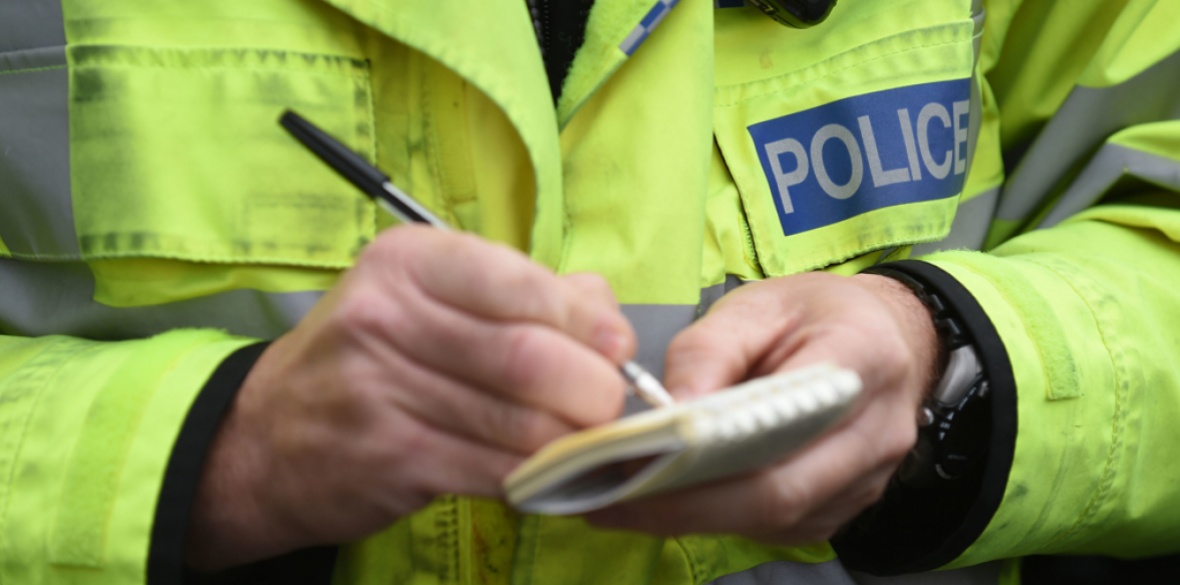This is the last article you can read this month
You can read more article this month
You can read more articles this month
Sorry your limit is up for this month
Reset on:
Please help support the Morning Star by subscribing here
MORE than six hundred children underwent “intrusive and traumatising” strip searches by the Metropolitan Police over a two-year period, with black boys disproportionately targeted, new figures show.
The data from Scotland Yard, slammed as “disturbing and horrific” by campaigners, reveals that 650 10-17-year-olds were subjected to the practice by Met officers between 2018 and 2020.
Of these, 58 per cent were described by the officer involved as being black, and more than 95 per cent were boys.
Children’s commissioner Dame Rachel de Souza requested the figures after the Child Q scandal came to light in March.
The 15-year-old schoolgirl was strip-searched by Met police while on her period after being wrongly suspected of carrying cannabis at school.
The search, conducted by female officers, took place in 2020 without another adult present and in the knowledge that she was menstruating, a safeguarding report found.
A review conducted by City & Hackney Safeguarding Children Partnership concluded the strip search should never have happened, was unjustified and racism “was likely to have been an influencing factor.”
Four Met officers are being investigated for gross misconduct by the Independent Office for Police Conduct in connection with the incident. Scotland Yard has apologised and said it “should never have happened.”
Today’s figures show that the number of strip-searches on children increased each year, with 18 per cent carried out in 2018, 36 per cent the following year and 46 per cent in 2020.
Alarmingly, nearly a quarter — 23 per cent — took place without an “appropriate adult” confirmed to have been present.
This is required by law, except in cases of “urgency,” and usually is a parent or guardian, but can also be a social worker, carer or a volunteer.
Overall, 53 per cent of all the strip-searches resulted in no further action, suggesting they “may well not be justified or necessary in all cases,” a “deeply shocked” Dame Rachel suggested.
She said: “I am not reassured that what happened to Child Q was an isolated issue, but instead believe it may be a particularly concerning example of a more systemic problem around child protection within the Met.
“I remain unconvinced that the [force] is consistently considering children’s welfare and wellbeing.”
She confirmed that she has submitted the figures to Baroness Louise Casey, who is carrying out a review into standards at the Met. The commissioner’s team will also request comparable data from all police forces across England.
Zita Holbourne, national chairwoman and co-founder of Black Activists Rising Against Cuts, slammed the “disturbing” findings, saying: “We know such invasive actions by police create lasting trauma.
“That such a high proportion [of victims] are black is indicative of the racial profiling police are guilty of and the institutional racism within policing.
“It is concerning that police are empowered to abuse children in this way with no consideration for human rights and the devastating impacts that strip searches will have on them.
“This is not acceptable – it is another horrific example of the Met abusing law and rights under the guise of upholding the law, and must be stopped.”
Stand Up To Racism’s Weyman Bennett warned of “institutional racism targeting children,” telling the Star: “Child Q was not alone but a feature of policing – it is urgent that we do something to stop this practice.
“According to the police, it’s illegal, so how come it is so widespread? It is an injustice based on class, an injustice we must outlaw.”
The Children’s Society warned that young people were being “completely failed if the intrusive and traumatic searches are taking place without basic safeguards being in place,” while the Runnymede Trust described the findings as “appalling.”
Chief executive Dr Halima Begum said they “underline how badly our children are being failed by the state institutions there to protect them.
“These experiences form the main lens through which children view the police, and often their teachers too when these searches happen at school.
“It’s the start of the breakdown of trust in the people and institutions supposedly there to protect them and keep them safe.
“Criminalisation and adultification is traumatic, not inspiring. Our children need to be supported to believe they can achieve anything they want to in this life. We know their experiences couldn’t be further from this.”
A spokesman for Labour’s London Mayor Sadiq Khan said he had already asked the Met to conduct a review of all strip-searches of children “to ensure lessons are learnt.”
Sir Mark Rowley, who replaced Dame Cressida Dick as Met commissioner last month, is “aware of the scale of improvement needed across the force so that every Londoner can feel both protected and served,” the spokesperson claimed.
A Met spokesman said the force was “progressing at pace to ensure children subject to intrusive searches are dealt with appropriately and respectfully. We recognise the significant impact such searches can have.
“We have already made changes and continue to work hard to balance the policing need for this type of search with the considerable impact it can have on young people.
“We have ensured our officers and staff have a refreshed understanding of the policy for conducting a ‘further search,’ particularly around the requirement for an appropriate adult to be present.
“We have also given officers advice around dealing with schools, ensuring that children are treated as children.”











